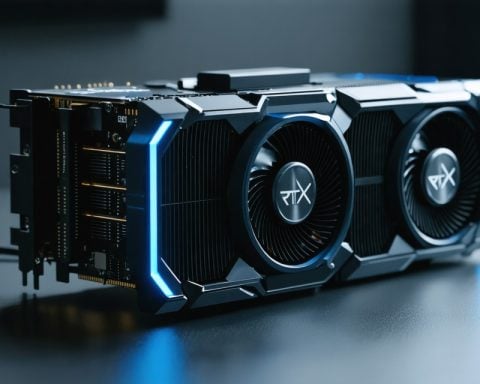In a bold strategic move, China has ramped up tensions in the ongoing “chip war” with the United States by initiating an antitrust investigation against Nvidia, a leading American chipmaker crucial to the AI revolution. This development comes amid a backdrop of escalating restrictions on AI technology sales from the U.S. to China.
The decision to investigate Nvidia is seen largely as a retaliatory measure against recent U.S. regulatory actions. Historically, China has used such investigations as a tool to counter American policies. However, complicating matters, the U.S. is also reportedly scrutinizing Nvidia for potential antitrust issues, indicating a broader tech industry clash.
Experts note that this marks a significant intensification in the chip conflict, given that both global powers perceive AI supremacy as essential to their national security. China and the United States are deeply invested in maintaining a competitive edge in AI, cyber warfare, and defense-related technologies.
Nvidia, a front-runner in the AI chip domain, risks being destabilized by these investigations, which could undermine its dominance. Previously, the two nations have engaged in reciprocal restrictions, affecting chip trade and manufacturing materials.
This investigation underscores China’s capacity to retaliate against U.S. pressures, aiming to challenge one of America’s giant tech companies. The implications might accelerate the economic separation between these major economies, as calls grow within China to reduce dependency on American chip products, posing a serious challenge to existing supply chains.
Tensions Escalate in the U.S.-China Chip War: Nvidia Under Scrutiny
In a dramatic twist to the ongoing “chip war” between China and the United States, both countries have intensified their focus on Nvidia, a pivotal player in the AI chip market. This rivalry reflects the broader geopolitical struggle over technological dominance and national security.
The antitrust investigation launched by China against Nvidia comes on the heels of tightened U.S. regulations on AI technology sales to China. While the action appears retaliatory, it highlights China’s strategic use of regulatory measures to counteract U.S. policies. Simultaneously, the United States is evaluating Nvidia for potential antitrust concerns, further complicating the landscape for one of the world’s leading chipmakers.
Pros and Cons of Nvidia’s Market Position
Pros:
– Technological Leadership: Nvidia stands at the forefront of AI chip innovation, offering cutting-edge solutions that empower numerous sectors, from automotive to deep learning.
– Market Influence: As a dominant player, Nvidia significantly influences global supply chains and tech developments, reinforcing its strategic importance.
Cons:
– Geopolitical Vulnerability: The dual scrutiny from both the U.S. and China exposes Nvidia to increased regulatory risks, affecting its business operations and investor confidence.
– Supply Chain Risks: Heightened tensions could disrupt supply chains, potentially leading to increased costs and production delays for Nvidia.
The Broader Implications for the Tech Industry
This dual investigation into Nvidia underscores the increasing divergence between the U.S. and China in tech development and data security. The focus on Nvidia is emblematic of how critical AI and chip technologies have become in modern geopolitics.
Economic Decoupling: As both nations intensify their focus on self-reliance in technology, there is a growing trend towards economic decoupling. This shift aims to reduce dependency on foreign technology and enhance domestic capabilities.
Supply Chain Realignment: The investigations may accelerate the realignment of global supply chains, as countries seek to insulate themselves from geopolitical tensions and foster local production capabilities.
Future Trends and Predictions
– Increased Domestic Investment: Both China and the U.S. are expected to increase investments in their domestic semiconductor capabilities to secure supply chains and reduce dependence on foreign entities.
– Innovation Push: The strategic importance of AI and chip technologies is likely to push companies towards new innovations, fostering rapid developments in the tech industry.
– Regulatory Changes: We may witness further regulatory changes and export controls in the tech sector as nations aim to protect their technological advantages.
Nvidia’s Strategic Path Forward
Nvidia must navigate the geopolitical challenges while continuing to lead in innovation. By fostering partnerships and investing in diversified supply chains, the company can mitigate risks associated with current tensions.
For more insights into Nvidia’s latest technologies and market strategies, visit the official link name.



















